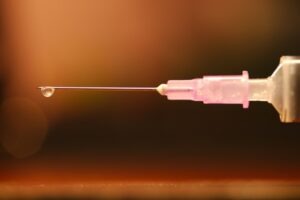Spark Therapeutics and Novartis have secured the approval from the European Commission (EC) for their one-time gene therapy Luxturna (voretigene neparvovec) to treat patients with a rare inherited form of vision loss that could lead to blindness.

Image: Luxturna product vial. Photo: courtesy of Spark Therapeutics, Inc.
Subscribe to our email newsletter
The European approval for Luxturna is for the treatment of inherited retinal dystrophy caused by confirmed biallelic RPE65 mutations in both adult and pediatric patients who have sufficient viable retinal cells.
Luxturna’s marketing authorization from the EC is valid across all 28-member states of the European Union (EU) along with Iceland, Liechtenstein and Norway.
The adeno-associated viral (AAV) vector gene therapy was approved by the US Food and Drug Administration (FDA) for the same indication in December 2017. A month later, Novartis secured the licensing rights from Spark Therapeutics to market Luxturna in Europe and all other markets except the US once it is approved by the EC.
Spark Therapeutics chief commercial officer Ron Philip said: “The historic approval of Luxturna in Europe furthers our mission to challenge the inevitability of genetic disease around the world.
“Following the launch of Luxturna in the United States earlier this year, this decision makes Luxturna the first gene therapy for a genetic disease approved in both the U.S. and EU, a promising milestone for the many people living with genetic disease around the world.”
The EC approval for the gene therapy follows a positive opinion adopted for it by the Committee for Medicinal Products for Human Use (CHMP) of the European Medicines Agency (EMA) in September 2018.
The approval was helped by the data from a phase 1 trial, a follow-up trial and a phase 3 trial. Put together, the three trials had enrolled 43 participants in total who were having inherited retinal disease caused by mutations in both copies of the RPE65 gene.
Novartis Pharmaceuticals CEO Paul Hudson said: “Novartis is committed to working with patients, caregivers, health systems and physicians to establish access to this gene therapy for RPE65 patients, as we believe it can help restore sight and improve vision in children and adults who currently have no treatment options.”
 Advertise With UsAdvertise on our extensive network of industry websites and newsletters.
Advertise With UsAdvertise on our extensive network of industry websites and newsletters.
 Get the PBR newsletterSign up to our free email to get all the latest PBR
news.
Get the PBR newsletterSign up to our free email to get all the latest PBR
news.

